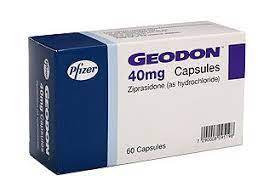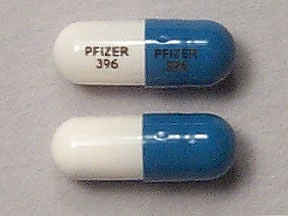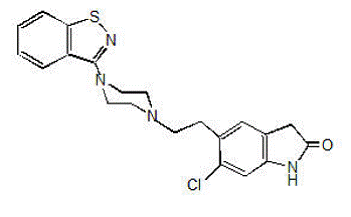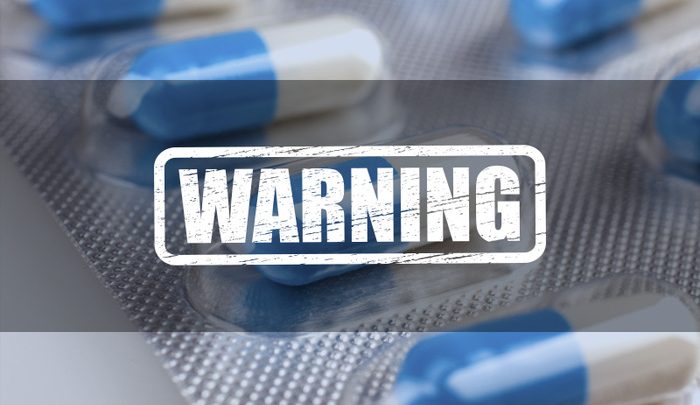Geodon, also known as ziprasidone, is a medication that’s used to treat schizophrenia and bipolar disorder. It was originally called “Invega” but got its current name in 2006 after it received FDA approval. Geodon is a drug that is for people who have certain problems with their brains. It helps with the problems. The brain has chemicals in it called serotonin and dopamine, and Geodon also has these two chemicals in it. But Geodon is different than other drugs because there are different things it can do. This article tells you about Geodon side effects and how it might help your mental illness. Side effects and pricing information are also there.
Contents
What Is Geodon?

Geodon is a medication that is used to treat mental illnesses such as schizophrenia and bipolar disorder. The drug belongs to a group of drugs called atypical antipsychotics. These drugs work differently than the older drugs used to treat these conditions.
How Does Geodon Work?
Geodon works by blocking certain receptors in the brain. These receptors are called dopamine D-sub(s) receptors and serotonin (or SERT). Blocking these receptors helps to restore the balance of certain chemicals in the brain. This is how it works for treating schizophrenia and bipolar disorder.
Geodon does not work as well on its own compared with some of the other atypical antipsychotics. However, it may be combined with another medication to improve its effects.
Directions Of Use

Geodon is usually taken two times each day. The first dose may be in the morning and the second at night, or it may just be one large daily dosage. It should never be mixed with alcohol or other drugs without consulting a doctor first.
How Long Does Geodon Take To Work?
Most people will start noticing an improvement within four to six weeks of taking Geodon. However, it can take up to eight weeks for the full effects to come out. If there is no improvement after eight weeks, then it is likely that this medication will not work for you.
Side Effects of Geodon

The most common side effects of Geodon are:
- Drowsiness or sleepiness: This can be particularly troublesome for those who drive or work with machinery.
- Nausea: It can happen that people who take Geodon often feel sick. They might not want to eat food. This is because they are taking the medicine, so they should eat small meals and take their medicine after the meal.
- Dry mouth: This can be a problem because it can lead to tooth decay and bad breath.
- Constipation: This is not a very common side effect, but it can occur. It is usually treated with stool softeners or laxatives.
- Weight gain: Geodon may cause some people to put on weight.
- Tremors: Some people taking Geodon may experience shaking or trembling in their arms and legs.
- Rashes: A few people have reported getting a rash after taking Geodon.
- Anger, hostility, or aggression: This is not a common side effect, but some people have reported feeling this way after taking Geodon.
- Anxiety: Some people may notice that their anxiety is worse after taking Geodon.
- Sexual function: The sexual side effects of Geodon can include impotence, decreased libido, and ejaculation disorders. If you experience any of these symptoms then it may be a good idea to discuss them with your doctor.
- Depression: Geodon increases the risk of depression.
- Suicidal thoughts: The FDA requires that all drugs with side effects carry a warning label. This is so people know what might happen if they take the drug. If you take an antipsychotic, then there is a small chance that it could make you very sick. If you notice any symptoms or signs then get help quickly.
- Seizures: Some people have experienced seizures while taking Geodon. If you ever experience any seizures while on this medication, then stop taking it and see your doctor immediately to find out what is going on.
- Tardive dyskinesia: This is a very serious side effect that can occur in some people if they take antipsychotics for too long of a period of time. Symptoms include uncontrolled movements of the face, mouth, and tongue. If you experience any of these symptoms then stop taking Geodon and see your doctor right away.
- Difficulty swallowing: Some people have complained of this side effect. It is not common, but it can be very serious if you suddenly find that you cannot swallow properly or cough up phlegm correctly.
- Dizziness: Some people taking Geodon may feel lightheaded or dizzy.
- Muscle spasms: This is not a very common side effect, but some people have reported muscle spasms while taking Geodon.
- Fast or irregular heartbeat: Some people have reported having a fast or irregular heartbeat while taking Geodon.
- Dry mouth: This is the most common side effect of Geodon, and it can lead to tooth decay if you are not careful. You can also treat it by alternating with another antipsychotic that does not cause dry mouth.
- Sudden swelling of the face, lips, eyes, or tongue: Always seek medical help if you experience any swelling that does not go away.
- Swelling of the hands and feet: This is a very rare side effect but one to be aware of. People taking Geodon with other medications such as diuretics for high blood pressure exhibit this symptom.
How To Deal With Geodon Side Effects?
Geodon is a powerful drug and any side effect that you experience can be very problematic. It is important to take the time to learn more about what your medication might do for you. You can talk with a doctor. If you are having problems with side effects, then they can give you advice on how to get them under control. They may also be able to prescribe another medication that will not cause the same kinds of side effects as Geodon.
Geodon is a very effective drug for treating schizophrenia and bipolar disorder. One should not take you lightly when you are dealing with the side effects. If you are experiencing any problems then it is important to talk with a doctor and get help. Do not try to deal with the problems on your own as they can be very serious.
Helping Someone Deal With Geodon Side Effects

The first thing you can do to help someone who is having Geodon side effects is not panic. Symptoms often go away when you adjust the dose of medication. Sometimes, they don’t last long enough to even have an adjustment made. This is common with most medications. People who take Geodon need to work closely with their doctor and tell them about any side effects they experience. Then the doctor can change the dose if they need to.
If you or a loved one has been prescribed this medication, it’s important to remember that these are not necessarily long-term consequences of being on the drug; in fact, most people find that they stop having side effects when the dosage is changed.
For instance, many people who take Geodon get dizzy at first but then their body adjusts to the medication and they feel better. Still, if you or a loved one experiences any of these symptoms while taking this drug it’s important to let your doctor know right away so that they can make any needed adjustments.
Withdrawal of Geodon
There is no evidence that Geodon can cause withdrawal symptoms if you stop it suddenly after long-term use. As with any medication, it’s a good idea to speak with your doctor before stopping treatment.
Some people who take antipsychotics for a long time can’t control their movements. This can lead to bad things happening. It is important to talk with your doctor and slowly taper off Geodon if you are taking it for a long period of time. Or if you plan on taking it for the rest of your life.
If you do not know how to go about tapering down the dosage yourself, ask your doctor. They will be able to help you.
Conclusion
Geodon is a medicine that can help people with mental illnesses. People who suffer from depression, schizophrenia, or bipolar disorder take this medication. Before taking this drug, you should know what it does. This will help you understand the side effects and whether you should take them. If you or someone in your family has these symptoms, then talk to their doctor before taking Geodon.
If you are looking for affordable Online Counseling MantraCare can help: Book a trial therapy session


